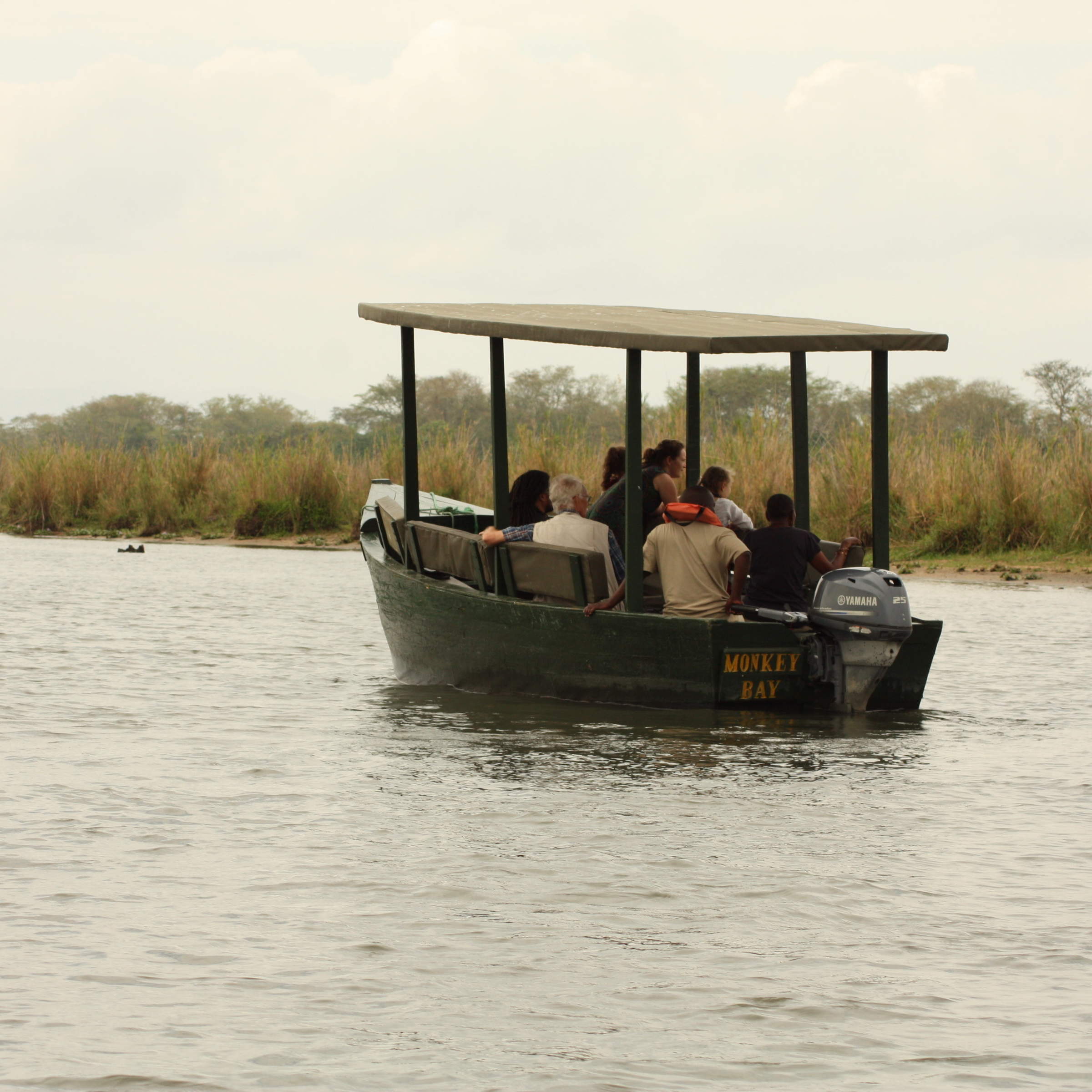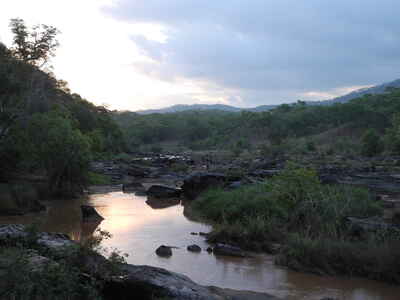
Nkhotakota, Malawi's oldest protected area
Nkhotakota, superb walking, canoeing and fishing.
Nkhotakota Wildlife Reserve
Nkhotakota Wildlife Reserve
As a true wilderness area, Nkhotakota is particularly attractive to travellers who wish to enjoy walking safaris, canoeing and fishing.
Located in central Malawi, below the Chipata Mountain the scenic Nkhotakota Wildlife Reserve is the country’s oldest and least-developed protected area. And at 1,802km², it is also the largest.
Nkhotakota’s rugged terrain stretches from the Great Rift Valley in the west to a few kilometres short of Lake Malawi in the east. Some of Malawi’s main rivers flow through it on their way to the lake and numerous streams and waterfalls cascade into the reserve from the edge of the escarpment.
Most of the reserve is dominated by brachystegia and miombo woodland with little open ground, while tall grasses and areas of both evergreens and rainforest are particularly characteristic of the wetter parts of the plateau.
Larger mammals in the Nkhotakota Reserve include elephant and buffalo, as well as the magnificent sable and kudu antelopes. And with over 280 bird species recorded here – including giant kingfishers, black stork and palm-nut vultures– it is not surprising that Birdlife International has classified Nkhotakota as an Important Bird Area (IBA).

Our top trips in Malawi
Here are 4 great Malawi trips to inspire you.

Utaka Cichlid Safari
10 days • 3 locations
BLANTYRE AIRPORT TO LILONGWE AIRPORT
Explore two of Malawi's safari parks - Majete Wildlife Reserve and Liwonde National Park - before finishing your trip with some beach time: relaxing, snorkelling and sailing in Lake Malawi National Park.
US$4,560 - US$5,700 per person

Red Zebra Cichlid Safari
7 days • 2 locations
BLANTYRE AIRPORT TO LILONGWE AIRPORT
Explore two of Malawi's highlights, with a safari in rugged, remote Majete Wildlife Reserve before some beach time: relaxing, snorkelling and sailing in Lake Malawi National Park.
US$3,580 - US$4,500 per person
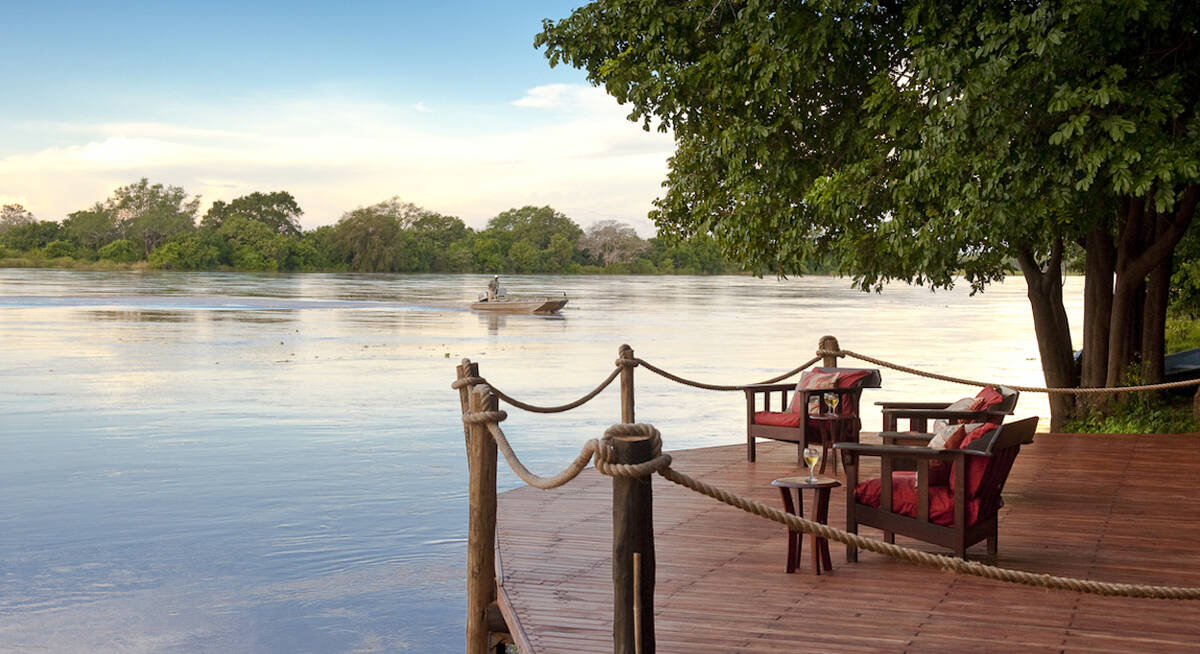
Hyena Safari
11 days • 4 locations
VICTORIA FALLS AIRPORT TO LILONGWE AIRPORT
Mix relaxation and adventure on a safari combining the South Luangwa with Victoria Falls and the beaches of Lake Malawi. These three locations are among the most iconic in southern Africa.
US$9,490 - US$11,910 per person
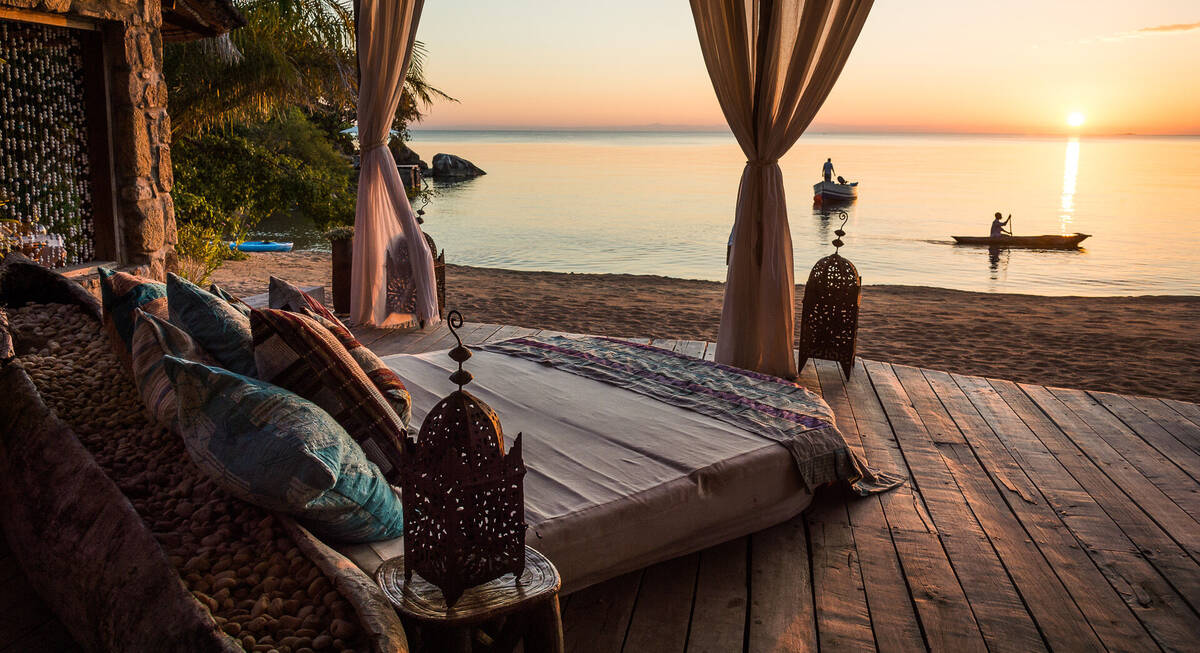
Peacock Cichlid Safari
4 days • 1 locations
LILONGWE AIRPORT TO LILONGWE AIRPORT
Snorkel in Lake Malawi’s famously clear fresh water, relax on the beach and explore Likoma Island from the award-winning Kaya Mawa. A chilled luxury add-on to end your safari.
US$3,600 - US$4,480 per person
Most recent reviews of our safaris to Nkhotakota
Click below to browse all 10 reviews from Nkhotakota Wildlife Reserve. All from our travellers; all are in full & unedited.
Arrived 28 Sep 2019, 18 nights
"A wonderful time in Malawi"
Overall rating: Excellent
Arrived 14 Sep 2019, 18 nights
"Malawi-Zambia"
Overall rating: Good
Arrived 3 Sep 2019, 21 nights
"A perfect Zambia - Malawi combination Holiday"
Overall rating: Excellent
Arrived 29 Jun 2019, 8 nights
"First time in Malawi"
Overall rating: Excellent
Arrived 10 Jul 2018, 17 nights
"Malawi is a must"
Overall rating: Excellent
Arrived 26 Sep 2016, 14 nights
"Malawi Holiday 2016"
Overall rating: Excellent
Arrived 20 Jul 2016, 10 nights
"A safari in Malawi"
Overall rating: Excellent
Arrived 7 May 2016, 13 nights
"Malawi 2016"
Overall rating: Excellent
Arrived 15 May 2015, 13 nights
"Historical Malawi Adventure"
Overall rating: Excellent
Arrived 19 Jul 2014, 13 nights
"Wonderful trip"
Overall rating: Excellent
Where to stay in Nkhotakota
Our suggestions for safari camps in Nkhotakota Wildlife Reserve
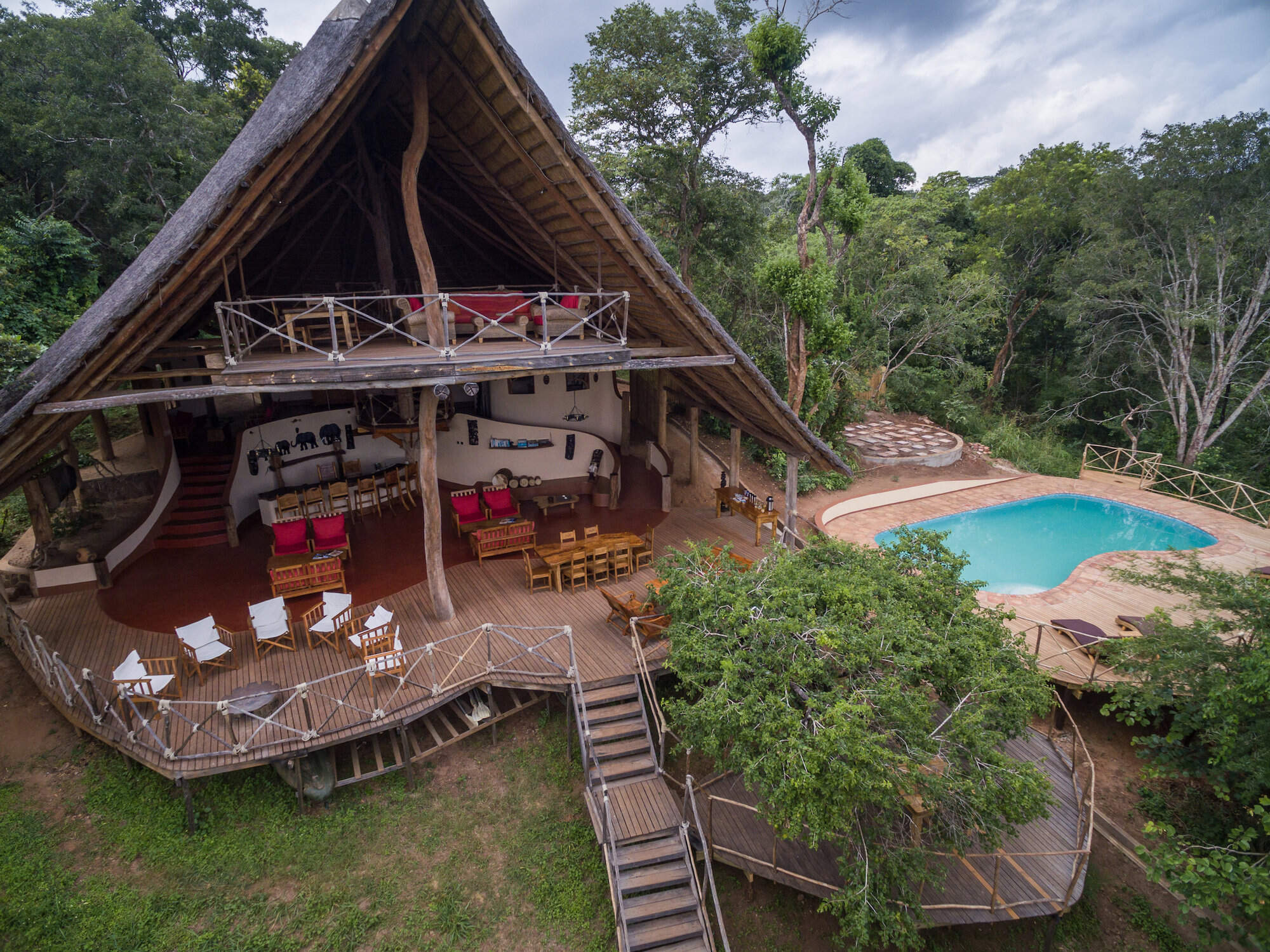
Tongole Wilderness Lodge
Tongole Wilderness Lodge is a relatively new luxury lodge in the Nkhotakota Wilderness Reserve offering walking, fishing and canoeing safaris in a pristine wilderness environment.
Our travellers’ wildlife sightings in Nkhotakota
This is their success for sightings in Nkhotakota Wildlife Reserve. Click on a species for more detail. How we work this out.

100% success

0% success

0% success

0% success

0% success

0% success

0% success
When to go to Nkhotakota Wildlife Reserve
Our month by month guide: What it's like to visit Nkhotakota in Malawi
Jan
Feb
Mar
Apr
May
Jun
Jul
Aug
Sep
Oct
Nov
Dec
Malawi in January
January is the middle of the rainy season in Malawi. You can expect heavy rain for a few hours most days with some occasional flooding. It is generally hot and wet, with temperatures reaching over 30ºC.
The landscape is green and lush and the air crystal clear. In the game reserves the thick bush can restrict animal sightings, making game viewing more challenging. With the abundance of water available the wildlife disperses and is no longer concentrated around water sources. However, many species give birth at this time of the year and it is a great time for birding.
Although the majority of the safari camps are open at this time, most of the beach lodges along the lakeshore close in mid January.
- Peak of the rainy season with thundershowers most days
- Many animals are with young & birdlife is at its most spectacular
- Bush lush & green; animals dispersed so game viewing more difficult
- Air is clear & dust-free, which is great for photography
- Majority of lakeside beach lodges are closed second half of January
Our view
This is not a great time to visit
Weather in January
Malawi in February
February is generally the wettest month and still the heart of the rainy season, with dramatic thunderstorms interspersed with sunny spells.
Expect some flooding and the ground to be waterlogged. The thick bush still affects game viewing on land, and walking safaris are limited, but game viewing by boat on the swollen Shire River, in both Liwonde National Park and Majete Game Reserve, is a highlight. Birdlife is also at its most spectacular at this time of year.
Visitor numbers and costs at the few open camps are low. Most of the beach lodges remain closed, with only one or two open all year.
- Peak of the rainy season with thundershowers most days
- The bush feels alive; birdlife is at its most spectacular
- Good for photography but poor game viewing
- Few tourists, so rates usually at their lowest
- Majority of lakeside beach lodges are still closed
Our view
This is not a great time to visit
Weather in February
Malawi in March
The rainy season is nearing the end in Malawi. The thunderstorms become fewer with sunnier days, but you can still expect some rain most days. March is one of the last of the summer months with temperatures still around 25–30ºC most days.
On safari the thick bush still restricts game viewing and walking safaris are limited too, with the larger animal species being quite elusive. On the plus side, migrant birds make the most of the abundant insect life. This time of the year is also great for keen photographers with the vivid green landscape and clear, dust-free air.
The beach lodges are also starting to open again around mid-March, following the rainy season.
- Expect to experience some rain most days
- The bush feels alive, with birdlife still a highlight
- Good for photography but game viewing remains poor
- With few tourists, rates generally at their lowest
- Beach lodges now open from mid-March
Our view
This is not a great time to visit
Weather in March
Malawi in April
April is a month of change in Malawi. The days start to cool down, rainfall decreases, and summer turns into autumn as the dry season approaches. Temperatures drop to around 25 ºC during the day with the evenings becoming cooler.
This is the tail-end of the green season and, after five months of rain, the landscape remains green and lush, with game viewing still a challenge. However, the birdlife is still great, and the improving weather attracts more visitors to both the bush and the beaches along the Malawi lakeshore.
- The temperatures are cooling down but still expect the odd rain shower
- Start of the dry season with mostly clear and sunny days
- Bush still green & lush: good for photography but not for game viewing
- Very few visitors, and still one of the cheapest times to visit
- The lakeshore beach lodges are now all open
Our view
A good time to visit, with pros & cons
Weather in April
Malawi in May
May is the end of summer and the first month of the dry season. There may still be the occasional shower, but clear sunny skies are becoming the norm. As winter approaches, daytime temperatures drop to a comfortable 20–25 ºC, but at night they’re down to around 10ºC, so warm clothing is advisable for early- morning game drives.
As the rain disappears the landscape starts to dry out. Although the vegetation is still thick, the game viewing starts to improve and walking safaris becoming more reliable. Birding is still excellent, too. Around the lakeshore, temperatures can be significantly warmer, making beach holidays popular at this time of the year. Yet visitor numbers remain low, making May one of the most cost-effective times to visit.
- Start of the dry season with mostly clear & sunny days
- Temperatures are mild along the lakeshore so good for a beach stay
- Bush still green & lush but game viewing improving
- Good for photography & great birdlife
- Very few visitors, & still one of the cheapest times to visit
Our view
A good time to visit, with pros & cons
Weather in May
Malawi in June
June is entirely in the dry season, and – along with May – can also be one of the coldest months. With no rain, clear skies and temperatures dropping to around 20–25ºC during the day, the nights can be cold, reaching around 10ºC. Warm clothing is advisable for early-morning and late-afternoon game drives.
The landscape remains lush, but the bush starts to die back significantly, bringing a marked improvement in wildlife viewing. This, along with cooler temperatures, makes June ideal for walking safaris. Temperatures around the lakeshore tend to be significantly warmer, so June is another popular month for beach holidays with higher visitor numbers.
- Well into the dry season with sunny days & cool temperatures
- Thick bush is dying back, & game viewing improves
- Increased visibility & cool weather perfect for walking safaris
- Mild temperatures along the lakeshore: good for a beach stay
- June is still low season : a popular time before high season starts
Our view
A very good time to visit
Weather in June
Malawi in July
July is the middle of the dry season in Malawi, with temperatures starting to pick up towards the end of the month. This makes July a good time for both safaris and beach holidays. Expect it to be pleasant during the day but still cold at night, especially at high altitude such as Nyika Plateau; blankets and hot water bottles are often provided on safari.
As the vegetation dies back, animals start to congregate around perennial water sources, making this one of the best times of year for game viewing.
July is also the start of high season and all the camps increase their rates to make the most of the improving game and the start of the international holiday period.
- Warm dry days with crisp cold nights
- Significantly improved game viewing
- No limit on walking safaris, with pleasant temperatures a plus
- Temperatures along the lakeshore ideal for beach and watersports
- Approaching peak season, so significant increase in costs
Our view
A very good time to visit
Weather in July
Malawi in August
August is well into the dry season with game concentrated around water sources and the safari season approaching its best. The landscape is changing from green to brown and the air is becoming drier and dustier. There is also a lot of smoke in the air as burning of trees and vegetation is prevalent in Malawi, so this isn’t the best time for photography.
Later in August the temperatures start to pick up, but early mornings and late evenings are still cooler – particularly out on open game drives where warm jackets, gloves and scarves are recommended. August is one of the most popular months. Pleasant weather and good game viewing attracts lots of visitors, and costs are correspondingly high.
- Warm dry days with crisp cold nights still the norm
- Game viewing at its best
- No limits on walking safaris, with pleasant temperatures a bonus
- Lakeshore temperatures remain good for beach and water sports
- Still peak season, with attendant high costs
Our view
Fantastic: the very best time to visit
Weather in August
Malawi in September
This is the most popular time of the year for a safari. There has been no rain for months and temperatures are starting to increase, making morning and evening game drives more comfortable. Daytime temperatures are now above 30ºC and evening temperatures relatively mild.
Game viewing is at its best with the animals concentrating around the reducing water sources, making wildlife interactions more common. With the increasing heat the air becomes more hazy, reducing photographic opportunities and distant views.
This is a good time to finish a safari with some relaxing time along the Malawi lakeshore. Costs, though, are high, and camps can be booked up months in advance.
- Dry & hot during the day with clear skies & warm nights
- One of the best months for wildlife viewing
- Dust & smoke creates a haze; not great for photography
- Temperatures along the lakeshore perfect for beach and watersports
- Peak season; camps are expensive & often full well in advance
Our view
Fantastic: the very best time to visit
Weather in September
Malawi in October
This is the last month of the dry season: the start of summer with temperatures peaking over 40ºC during the day and hardly less than 20ºC at night. This makes early-morning and late-evening game drives more comfortable but can be terribly hot during the day and makes walking safaris very challenging.
The landscape is very dry and brown, so not ideal for photography, but game viewing remains at its best. With the lack of water the animals are all vying for the best spot to drink without being preyed upon.
October is the perfect time to finish a safari with some relaxing time along the Malawi lakeshore. It is still peak season, though, and costs remain high.
- Dry, hot days with clear skies; warm nights
- One of the best months for wildlife viewing
- The haze from dust & smoke is not great for photography
- Warm lakeshore temperatures still good for beach & watersports
- Peak season; camps are expensive & often full well in advance
Our view
A very good time to visit
Weather in October
Malawi in November
November marks the end of the dry season and the start of the rainy season. Temperatures continue to increase with humidity building as the rains approach, which can be any time during the month. Be prepared for spectacular thunderstorms and short sharp showers.
After the first rains the bush springs back to life and wildlife disperses, making game viewing harder. Birding, though, is on the up – and with the air washed clean, photographic opportunities improve.
The first week or two are a good time to travel as the camps have reduced their rates and rains may not have started in earnest. However, while all the camps and beach lodges remain open some of the airstrips may become waterlogged, making road transfers more practical.
- Typically the start of the wet season; very hot & humid
- Increased chance of heavy rain as the month progresses
- Greatly diminished game viewing once the rains arrive
- A good time for photographers & keen birders
- Lower rates at camps and beach lodges, with fewer visitors
Our view
A good time to visit, with pros & cons
Weather in November
Malawi in December
December is the first full month of the rainy season, with daily thundershowers expected, interspersed with sunny spells. Temperatures are around 30ºC with high humidity.
After a few weeks of rain, the abundance of standing water causes animals to disperse and the bush becomes thicker and greener, reducing visibility for game viewing. Conversely, this is when many animals produce their young, and is a great time for birdwatching. The rain also clears the air of dust and smoke, making it much more favourable for keen photographers.
December is still a good month to be along the lakeshore provided you don’t mind the afternoon rain showers.
- Very hot & humid
- Increased chance of heavy rain as the month progresses
- Opportunities for game viewing decrease with the arrival of the rains
- A great time for photographers & keen birders
- Rates at camps & beach lodges fall, as do visitor numbers
Our view
A good time to visit, with pros & cons
Weather in December
Map of Nkhotakota Wildlife Reserve
Choices for where to stay in Nkhotakota Wildlife Reserve
Our Best place to stay in Nkhotakota Wildlife Reserve
The best lodge we can recommend opened in April 2011, a luxury eco-lodge lying deep within the reserve at the confluence of the Bua & Kachenga rivers and has quickly established itself as one of the finest lodges anywhere in Malawi.

Tongole Wilderness Lodge
Tongole Wilderness Lodge is a relatively new luxury lodge in the Nkhotakota Wilderness Reserve offering walking, fishing and canoeing safaris in a pristine wilderness environment.

Looking for inspiration on where to travel next?
Visit our trip chooser to explore your options and find inspiration for your perfect African adventure
Inspire me







